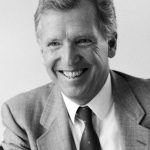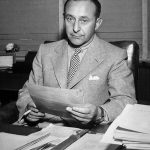Date of Birth: April 27, 1904
Zodiac Sign: Taurus
Date of Death: June 26, 1987
Biography
Arthur Frank Burns was a prominent American economist and government official who played a significant role in shaping U.S. economic policy in the mid-20th century. Born in Stanisławów, Austria-Hungary (now Ivano-Frankivsk, Ukraine), Burns immigrated to the United States with his family in 1914. He earned his Ph.D. in economics from Columbia University in 1934, where he later became a professor and an influential figure in economic thought. Burns is best known for his tenure as the Chairman of the Federal Reserve, serving from 1970 to 1978 under Presidents Richard Nixon, Gerald Ford, and Jimmy Carter. During his time at the Fed, he faced numerous economic challenges, including rising inflation and unemployment. Despite his best efforts, his policies received mixed reviews, with some critics arguing that his measures were ineffective in controlling stagflation. In addition to his role at the Federal Reserve, Burns was an advisor to several U.S. Presidents and served as the U.S. Ambassador to West Germany from 1981 to 1985. He was also the President of the National Bureau of Economic Research (NBER) and a respected author and lecturer, contributing significantly to economic theory and policy.
5 Interesting Facts about Arthur Frank Burns
1. Arthur F. Burns was the first Jewish Chairman of the Federal Reserve.
2. He received the Presidential Medal of Freedom in 1977.
3. Burns was a close advisor to President Dwight D. Eisenhower before his tenure at the Federal Reserve.
4. He was instrumental in the establishment of the National Bureau of Economic Research (NBER).
5. Burns served as the U.S. Ambassador to West Germany from 1981 to 1985.
5 Most Interesting Quotes from Arthur Frank Burns
1. “The Federal Reserve cannot solve all the problems of the economy.”
2. “Inflation is like sin; every government denounces it and every government practices it.”
3. “Economic strength to a nation is like character to a man.”
4. “Monetary policy is not a panacea. It cannot repeal the business cycle.”
5. “The prosperity of a country depends more on the quality of its economic policies than on the abundance of its resources.”
Highest Net Worth Achieved
Arthur F. Burns did not amass significant personal wealth from his public service roles, but his influence on economic policy was immense. His net worth is not publicly documented, but his legacy in economic thought and policy is invaluable.
Children
Arthur F. Burns had one child, a son named David Burns.
Relevant Links

